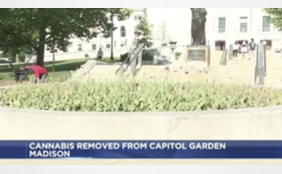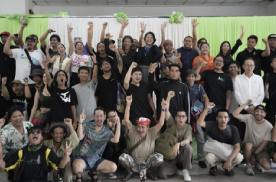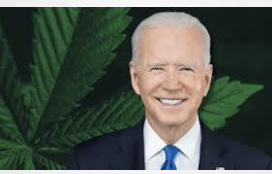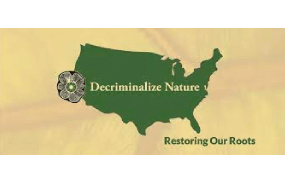Lucid News report
his article is part 2 of a series. For part 1, click here. Join series author Ali McGhee for a discussion about these articles on Twitter Spaces, Tuesday April 26 at 8:00 ET / 5:00 PT. Click here to join.
Decriminalize Nature, the national organization that has brought together local chapters to advocate for the decriminalization of psychedelics, is proud of its guidelines. These guidelines emphasize its commitment to ensuring equitable access to all plants and fungi containing psychedelic compounds that are currently on the Schedule 1 list of controlled substances. The group also advocates for decriminalization of these substances without possession limits that are sometimes part of state initiatives.
Among the plants that DN calls for decriminalizing is peyote, a controversial stance among psychedelic activists and one that has thrown DN’s national board of directors into the spotlight, including public disagreements with other leaders and organizers in the field.
Citing widespread concern that the overharvesting of wild peyote threatens the plant with extinction, several groups have cut ties with DN citing the organization’s stance on peyote as a central factor. Nathan Howard, of the Plant Medicine Healing Alliance (PMHA), a national organization that focuses on decriminalization efforts in Portland and Oregon, notes that “people, including DN’s founders, have gone in different directions because of things like what we’ve seen with the National Council of Native American Churches (NCNAC), which has made really clear requests not to include their sacred medicine” in decrim efforts.
Howard adds that “peyote is trending in the wrong direction.” He says that personality clashes between DN leadership and other individuals and groups have caused fractures within the organization that has affected the larger psychedelic advocacy movement.
Bia Labate, Chacruna founder and spokesperson, criticizes DN’s continued conflicts with the NCNAC and others over peyote. She says Chacruna does not currently foresee a future relationship with DN. “We originally supported DN with feedback, published a few articles, with a few live interviews, supported the City Council meetings in Oakland, and spread their word, as well as invited them to our events,” Labate says. “However, we no longer collaborate with them.”
Howard says he sees most policy initiatives at the state and local level aligning with the NCNAC’s wishes and evolving into independent groups instead of local DN chapters. “Santa Cruz and Seattle removed peyote from the list, as did our measure in Portland,” says Howard of the local chapters who had views that are different from DN leadership. “There’s a complete policy picture emerging here. Groups are getting the policies right, but some are changing their names. To many of us it seems this is mostly about a couple of people who are moving from what feels like a divisive, binary framework rather than from a healing, listening place.”
The Heroic Hearts Project, which offers programs for veterans interested in psychedelic medicine, has respected the NCNAC’s stance on peyote. It has also shifted away from working with DN’s national board to collaborating directly with locally-based affiliate organizations. “We’re the co-sponsors of the California bill, which purposely left out peyote” at the request of the NCNAC, says founder Jesse Gould of California Senate Bill B519, California’s proposed decriminalization bill. “There are arguments on both sides,” he adds, “but we felt it was still a good bill without having that.”
The Issue of Incrementalism
Decriminalize Nature is against the inclusion of possession limits on entheogenic plants and fungi, a position the organization describes as “full decriminalization.” The more incremental approach some groups have taken at the local and statewide level, which embraces some possession limits and omits peyote, means they do not align with DN’s guidelines.
These conflicting views were highlighted recently when two competing psychedelics ballot initiatives were introduced in Colorado. The first ballot initiative takes an approach similar to California’s SB519, and includes possession limits but does not include peyote. A week later, a competing DN-backed ballot initiative was filed which has no possession limits and decriminalizes peyote.
“There’s an unwillingness to compromise or appreciate the political realities that shape our conversations,” Howard says, referring to DN. “PMHA allies are trying to get a bill passed through the California Assembly, but the bill would have died unless we included some sort of caps – we proposed high caps with allowance for aggregating amounts for communal use.”
“We need to compromise for the greater good, and the diverse advisory team came up with language that we feel was a great compromise, expanding caps for those who are supporting groups,” continues Howard. “There are two leaders of a branch of DN in Oakland that are unwilling to make that compromise, or appreciate what is politically feasible when trying to pass something in a state with over 30 million residents and with hundreds of pieces of legislation.”
Jason Ortiz, Executive Director for the SSDP, agrees that the incremental approach is more likely to get pending legislation across the finish line. “I have found that there is this thread that if a policy isn’t perfect, we shouldn’t do it at all,” he says. “People look at a bill and say, ‘It doesn’t do X, so I’m opposed.’ The issue of radical change versus incremental change was definitely coming to a head during cannabis legalization, and it was almost getting to the point where we wouldn’t have supported legalization then. It’s about being incremental, but also comprehensive.”
Read more at
Decrim Movement Split Over Peyote, Possession Limits, and Tactics

















